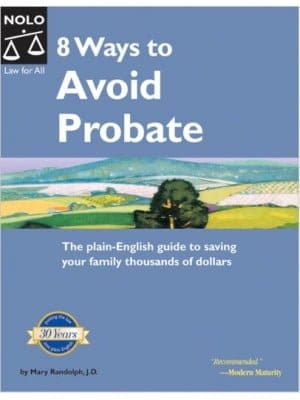Bashkohuni me ekipin tonë. A jeni gati të rrisni biznesin tuaj? Mëso më shumë
8 Ways to avoid probate
1 €
During probate proceedings, a deceased person’s will is brought to the local court. Proof must be shown that the will is authentic and was properly signed, with all the formalities required by state law. The deceased person’s property is inventoried and appraised, relatives and creditors are notified, and a notice is published in the local newspaper. Creditors make their claims, and debts are paid. Eventually—commonly, about a year later—the remaining property is distributed to the inheritors.
- Description
Description
Probate’s problems have been well documented and well publicized. And if you’ve experienced the probate process firsthand, after the death of a parent or spouse, you probably don’t need any convincing that avoidance is the best strategy. But in case you still aren’t sure why planning to avoid probate is worth some effort, here is a summary of the important downsides.
Avoiding probate doesn’t mean avoiding taxes. In fact, the two are completely unrelated. If you give away a lot of money during your life, or leave a lot at your death, the state and federal governments may take a chunk of it in the form of gift or estate tax. The government is uninterested in whether or not the property goes through probate court on its way to the people who inherit it.
Read the book to know more about it.










